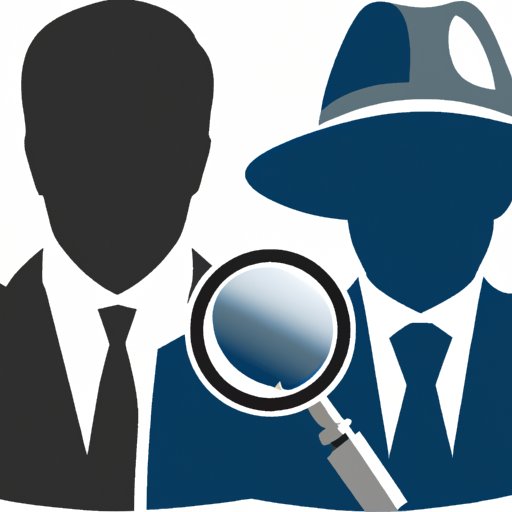Introduction
A detective is a professional investigator who gathers facts and evidence to solve crimes or civil cases. To be a good detective, one must have the ability to observe and analyze clues, conduct interviews, and use technology to assist in investigations. In this article, we will explore how to develop the skills needed to be a good detective.
Develop Keen Observation Skills
Having keen observation skills is essential for any detective. Paying attention to even the smallest details can often lead to clues that help solve a case. To hone observation skills, detectives should practice actively noticing their surroundings and making mental notes of what they see. Additionally, detectives can practice their observation skills by playing memory games or puzzles that require a keen eye.
Utilize Technology to Assist in Investigations
Using technology to assist in investigations can be very helpful for detectives. Technology can be used to track suspects, review surveillance footage, and access databases that can provide useful information. Detectives should take advantage of technology when it is available and learn how to use it effectively.
Cultivate Strong Interviewing Techniques
Interviews are an important part of any investigation. To be a successful detective, one must be able to interview witnesses and suspects effectively. Before conducting an interview, detectives should prepare by gathering relevant information, researching the person they will be interviewing, and developing questions to ask. During the interview, detectives should remain professional and maintain an open mind. They should also take detailed notes and be sure to follow up with any leads they may uncover.

Analyze Evidence Effectively and Thoroughly
Evidence is key to solving any investigation, so it’s essential for detectives to be able to analyze evidence effectively and thoroughly. Detectives should understand the importance of evidence and strive to collect as much of it as possible. When analyzing evidence, detectives should look for patterns, inconsistencies, and anything else that could be useful. Additionally, they should be sure to review all evidence multiple times and consider different angles.
Remain Impartial and Objective
It can be difficult for detectives to remain impartial and objective during an investigation, especially if they become emotionally involved. However, it is essential for them to maintain objectivity in order to make sound decisions. To remain unbiased, detectives should be aware of their own biases and strive to consider all sides of a situation. Additionally, they should consult with colleagues and supervisors to ensure that their decisions are fair and just.
Conclusion
To be a successful detective, one must possess a variety of skills, including keen observation, strong interviewing techniques, and effective evidence analysis. Additionally, it is important for detectives to remain impartial and objective during an investigation. By honing these skills and remaining unbiased, detectives can become successful investigators.
(Note: Is this article not meeting your expectations? Do you have knowledge or insights to share? Unlock new opportunities and expand your reach by joining our authors team. Click Registration to join us and share your expertise with our readers.)
